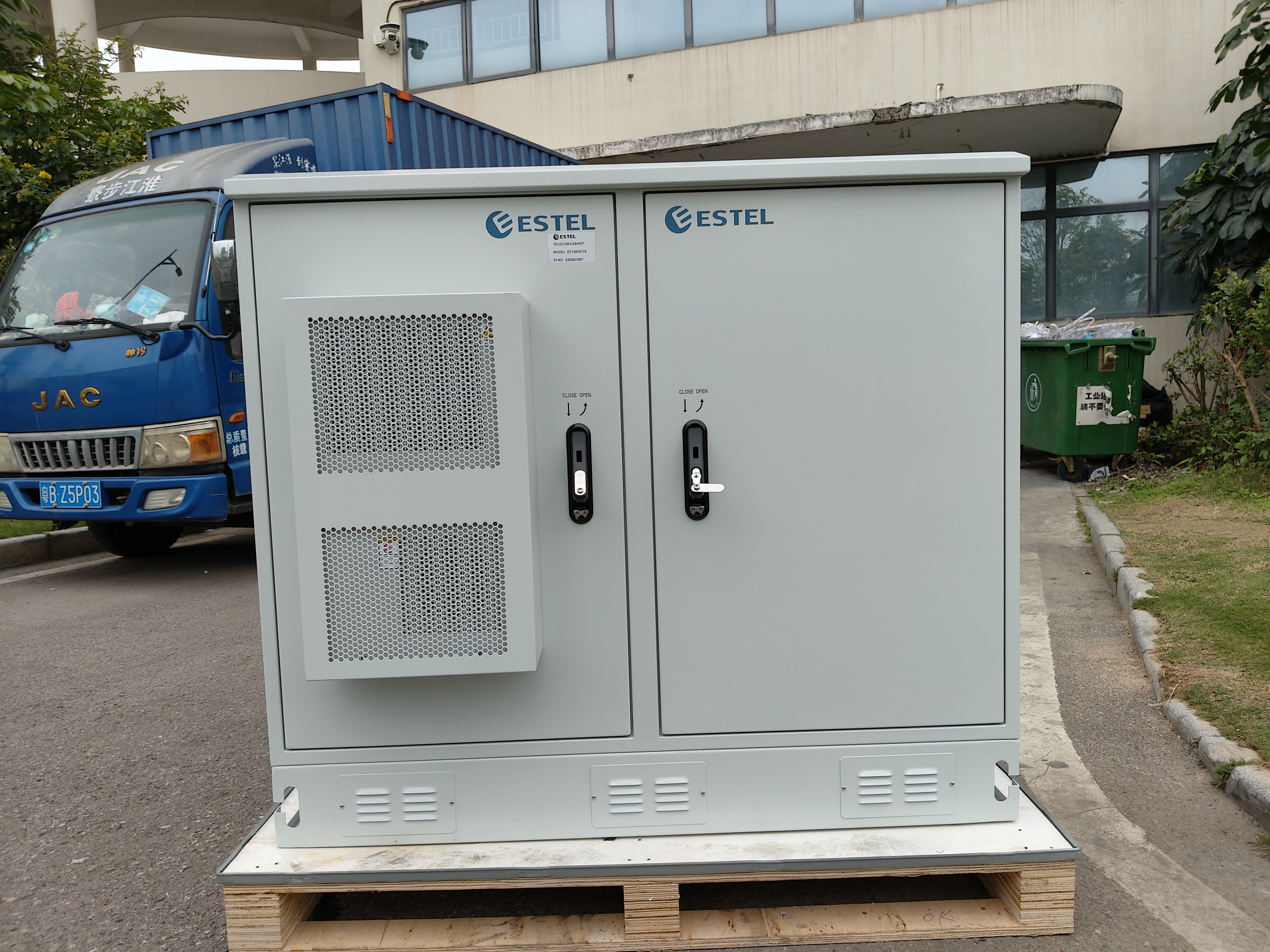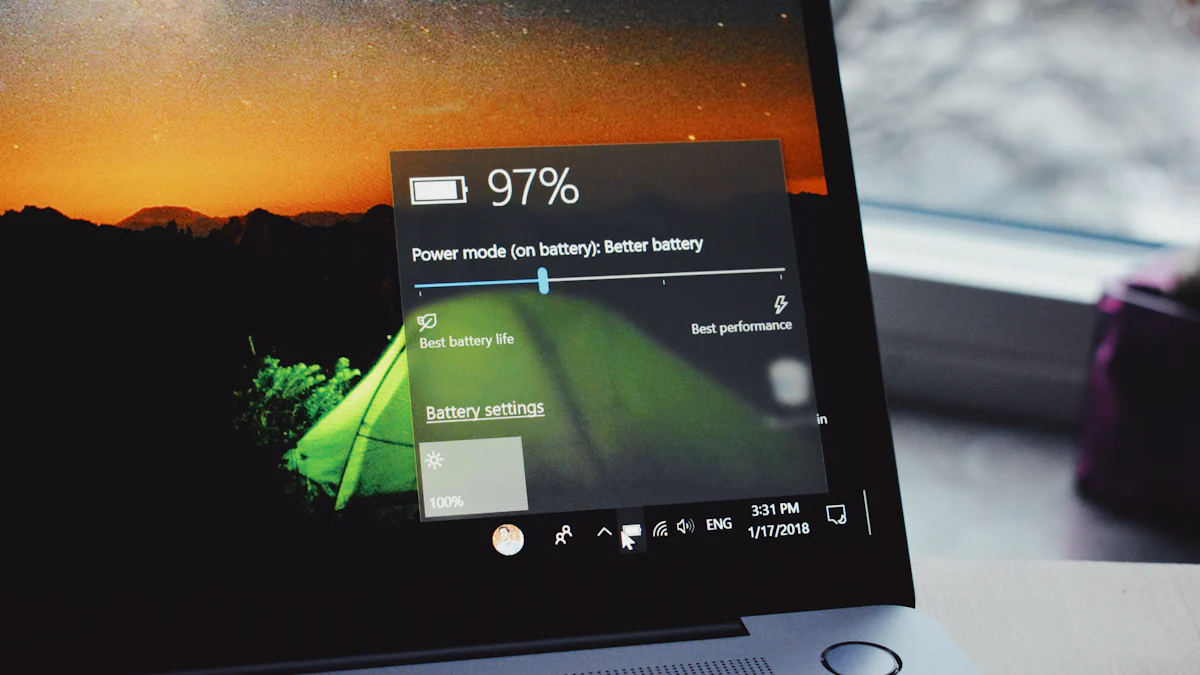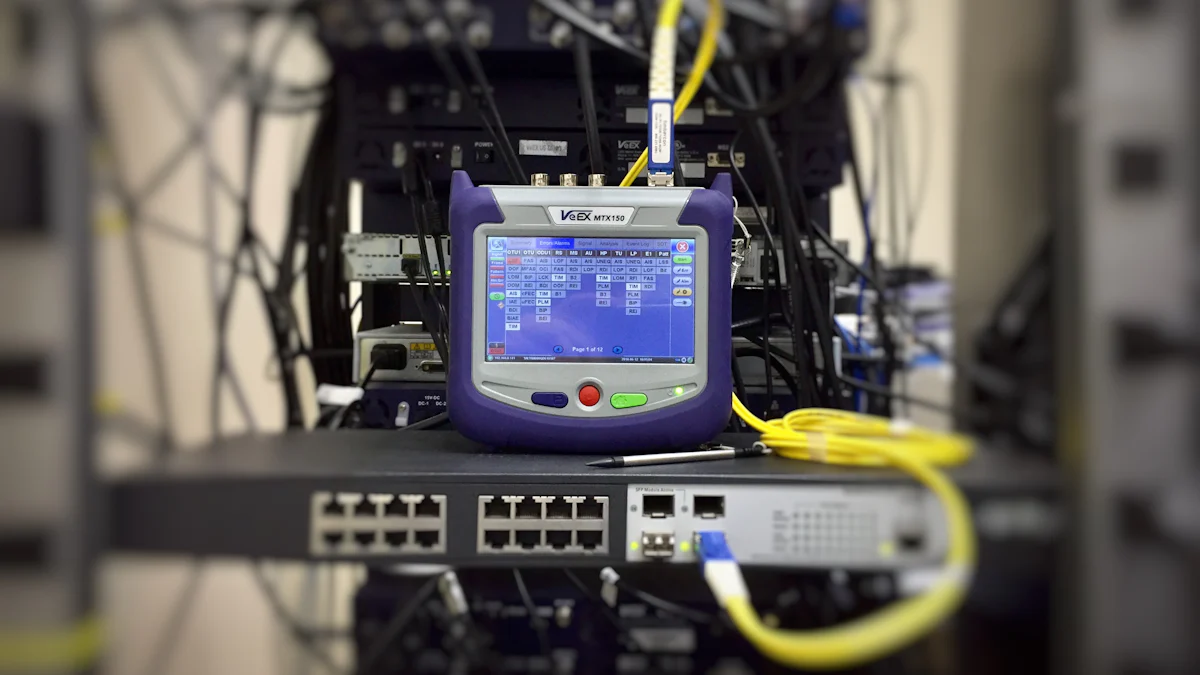Why lithium batteries outperform alternatives in telecom cabinets

When choosing the right power source for telecom cabinets, you need a solution that delivers reliability, efficiency, and durability. Lithium batteries stand out as the top choice for "通信机柜电池的选择." Their high energy density allows them to store more power in a compact design, ensuring consistent performance for your telecom equipment. These batteries also last longer, handling frequent charge-discharge cycles without losing efficiency. Their lightweight structure reduces installation challenges, while minimal maintenance requirements save you time and costs. With lithium batteries, you gain a dependable power solution tailored to meet the demands of modern telecommunications.
Key Takeaways
Lithium batteries store a lot of energy in a small size. This helps save space in telecom cabinets.
They last 10-15 years, so they need fewer replacements. This saves time and money for telecom companies.
Their light weight makes them easy to install. It also puts less strain on cabinets, working well in cities and villages.
Lithium batteries need little care, so no regular fixing is needed. This lowers costs and saves time.
These batteries give steady power even when used a lot. This keeps telecom systems running smoothly.
Key Advantages of Lithium Batteries in Communication Cabinets

Energy Efficiency and Density
High energy storage capacity in a compact form
Lithium batteries offer unmatched energy storage capabilities, making them ideal for telecom cabinets. Their high energy density allows them to store more power in a smaller space compared to traditional options like lead-acid batteries. For instance, lithium-ion batteries can achieve energy densities of up to 330 watt-hours per kilogram, while lead-acid batteries only reach about 75 watt-hours per kilogram. This compact design ensures you can maximize cabinet space without compromising performance.
Feature | Lithium Batteries | Lead-Acid Batteries |
|---|---|---|
Energy Density | High | Moderate |
Additionally, lithium batteries come in various capacities tailored to telecom needs. A 50 Ah battery can provide up to 5 hours of runtime, while a 200 Ah battery delivers 20 hours, ensuring consistent power for your equipment.
Capacity (Ah) | Runtime (Hours) |
|---|---|
50 Ah | 5 hours |
100 Ah | 10 hours |
200 Ah | 20 hours |
Consistent power delivery for telecom equipment
Lithium batteries maintain stable power output, even under high loads. This reliability ensures your telecom systems operate smoothly, reducing the risk of downtime during critical operations. Their ability to handle peak demands without performance drops makes them a dependable choice for modern telecom infrastructure.
Longevity and Durability
Extended lifespan compared to traditional batteries
Lithium batteries deliver a long life, lasting up to 10-15 years, far surpassing the 3-5 years typical of lead-acid batteries. This extended lifespan reduces the frequency of replacements, saving you time and money over the long term.
Battery Type | Average Lifespan |
|---|---|
Lead-Acid Batteries | 3-5 years |
Lithium-Ion Batteries | 10-15 years |
Resistance to frequent charge-discharge cycles
Frequent charge-discharge cycles are common in telecom applications. Lithium batteries excel in these conditions, offering up to 5,000 cycles in advanced models. This durability ensures they remain efficient and reliable, even with heavy usage.
Compact and Lightweight Design
Space-saving benefits for telecom cabinets
Lithium batteries' compact size allows you to optimize space within your telecom cabinets. This feature is especially beneficial for outdoor telecom cabinets, where space is often limited. By choosing lithium batteries, you can house more equipment or reduce the overall cabinet size.
Easier installation and reduced structural load
The lightweight nature of lithium batteries simplifies installation. Their reduced weight also minimizes the structural load on your telecom cabinets, making them easier to transport and install in remote or urban locations. This convenience enhances their appeal for telecom providers seeking efficient solutions.
Minimal Maintenance Needs
No need for regular water refills or upkeep
Lithium batteries eliminate many of the maintenance tasks associated with traditional options like lead-acid batteries. You no longer need to worry about topping up distilled water, a routine requirement for flooded lead-acid designs. This is because lithium batteries do not rely on liquid electrolytes that need monitoring or replenishment. Their sealed design ensures they operate efficiently without manual intervention.
This maintenance-free feature saves you time and effort, especially in telecom applications where accessibility can be a challenge. Outdoor telecom cabinets, often located in remote or hard-to-reach areas, benefit greatly from this convenience. By choosing lithium batteries, you reduce the need for frequent site visits, allowing you to focus on other critical tasks.
Reduced downtime and operational costs
Lithium batteries also help you minimize downtime. Their reliability ensures consistent performance, reducing the risk of unexpected failures that could disrupt telecom operations. Unlike lead-acid batteries, which may require frequent inspections and replacements, lithium batteries maintain their efficiency over time.
This durability translates into significant cost savings. You spend less on maintenance, repairs, and replacements. Additionally, the long lifespan of lithium batteries means fewer disruptions to your operations. For telecom providers, this reliability is crucial for maintaining uninterrupted service, especially in critical environments.
With lithium batteries, you gain a power solution that simplifies maintenance while enhancing efficiency. Their advanced design ensures you can focus on delivering seamless telecom services without worrying about upkeep.
Comparison with Alternative Battery Technologies
Performance Under High Loads
Superior efficiency during peak power demands
When your telecom systems face peak power demands, lithium batteries deliver consistent performance. Unlike lead-acid batteries, which experience reduced efficiency as their charge depletes, lithium batteries maintain steady voltage and output. This ensures your telecom equipment operates without interruptions, even during high-load scenarios.
Battery Type | Energy Density (Wh/L) | Performance under Load | Efficiency |
|---|---|---|---|
Lead-Acid | 80–90 | Reduced performance as charge depletes | Lower |
Lithium-Ion | 100–265 | Consistent voltage and steady performance | Higher |
Stable performance in extreme temperatures
Lithium batteries, particularly LiFePO4 models, excel in extreme temperatures. They maintain efficiency and capacity across a wide range of conditions, unlike lead-acid and AGM batteries, which degrade significantly. For example:
Lead-acid batteries can lose up to 50% of their capacity in hot climates.
AGM batteries experience reduced efficiency and shorter cycle life in harsh conditions.
LiFePO4 batteries consistently perform, ensuring reliability in both hot and cold environments.
This makes lithium batteries ideal for outdoor telecom cabinets, where temperature fluctuations are common.
Environmental Impact and Sustainability
Lower carbon footprint compared to lead-acid batteries
Lithium batteries align with green environmental protection goals by offering a lower carbon footprint. Their higher energy efficiency means less energy is wasted during operation, reducing overall emissions. In contrast, lead-acid batteries require more frequent replacements, contributing to higher production and disposal-related emissions.
Recyclability and reduced hazardous waste
While lithium batteries historically faced recycling challenges, advancements have improved their recyclability. Lead-acid batteries, however, remain 100% recyclable, making them a benchmark for recycling standards. Despite this, lithium batteries produce less hazardous waste over their lifespan, aligning with modern sustainability goals.
Cost-Effectiveness Over Time
Higher upfront cost offset by longer lifespan
Lithium batteries may have a higher initial cost, but their extended lifespan and efficiency make them a cost-effective choice. Over a 10-year period, their total cost of ownership is significantly lower than lead-acid batteries.
Battery Type | Upfront Cost | Operational Cost | Maintenance Cost | Lifespan (Years) |
|---|---|---|---|---|
Lithium | Higher | Lower | Minimal | Up to 10 |
Lead-Acid | Lower | Higher | Significant | 3 to 5 |
Reduced maintenance and replacement expenses
Lithium batteries require minimal maintenance, saving you time and money. Their durability also reduces the need for frequent replacements, unlike lead-acid batteries, which often need replacement every 3-5 years. This reliability ensures uninterrupted operations for your telecom systems, whether in a data center or an outdoor cabinet.
Safety and Reliability in Telecom Environments
Advanced Safety Features
Built-in battery management systems (BMS) for monitoring
Lithium batteries come equipped with a battery management system, ensuring good safety and operational efficiency. This system continuously monitors critical parameters like voltage, internal resistance, and temperature. You benefit from real-time data management, which allows for accurate performance tracking.
Automatic alarms notify you of any deviations, helping you address potential issues before they escalate.
The system enhances battery utilization by identifying parameters online and self-correcting the charging process.
Advanced power management ensures the battery maintains a stable state of charge (SOC) with minimal error.
These features make lithium batteries a safe and reliable choice for telecom environments, especially when compared to traditional alternatives.
Thermal stability to prevent overheating or fires
Thermal stability is another key advantage of lithium batteries. They are designed to resist overheating, even under high loads or extreme conditions. This reduces the risk of thermal runaway, a common concern with older battery technologies. By maintaining consistent internal temperatures, lithium batteries ensure safe operation in both indoor and outdoor telecom cabinets.
Reliability in Critical Operations
Consistent power supply during outages
Lithium batteries excel as emergency backup power sources. Their higher energy density and faster charging capabilities ensure your telecom systems remain operational during outages. Compared to lead-acid batteries, lithium options last longer and require less maintenance, reducing downtime.
Feature | Description |
|---|---|
Higher Energy Density | More power in a smaller size. |
Longer Lifespan | Typically last longer than lead-acid batteries. |
Faster Charging | Reduced downtime during power outages. |
Low Maintenance | Minimal upkeep required compared to lead-acid. |
Additionally, lithium batteries can store excess energy from renewable sources, providing a reliable backup solution for critical telecom operations.
Proven performance in remote and harsh environments
Lithium batteries, particularly LiFePO4 models, are engineered to perform in extreme conditions. They operate efficiently in temperatures ranging from -4℉ (-20℃) to 158℉ (70℃). This makes them ideal for outdoor telecom cabinets in remote or harsh environments. In contrast, lead-acid batteries lose up to 50% of their capacity in high temperatures, while AGM batteries degrade faster in extreme climates. With lithium batteries, you gain a dependable power source that meets the computer room lithium battery standard, ensuring uninterrupted service in any environment.
Real-World Applications of Lithium Batteries in Telecom Cabinets

Adoption by Telecom Providers
Examples of major telecom companies using lithium solutions
Many leading telecom providers have embraced lithium batteries for their operations due to their efficiency and reliability. Companies like NorthStar, Saft, and EnerSys have integrated lithium solutions into their infrastructure to meet the growing demands of modern telecommunications. Panasonic and Redway Power also offer advanced lithium batteries tailored for telecom applications. These providers rely on lithium technology to ensure uninterrupted service, even in challenging environments. By adopting these batteries, they have enhanced their operational efficiency and reduced maintenance costs.
Case studies showcasing improved efficiency and reliability
Telecom providers using lithium batteries have reported significant improvements in performance. For instance, a case study involving a rural telecom operator demonstrated how lithium batteries reduced downtime by 30%. Their longer lifespan and faster charging capabilities ensured consistent power delivery, even during outages. Another example highlighted an urban telecom provider that replaced lead-acid batteries with lithium alternatives. This switch saved 40% of cabinet space and reduced maintenance visits by half. These real-world examples showcase how lithium batteries provide safe and reliable power solutions for telecom operators.
Performance in Outdoor Telecom Cabinets
Reliable power for rural telecom towers
Lithium batteries excel in powering rural telecom towers, where reliability is critical. Their high energy density allows them to store more energy in a smaller space, ensuring consistent power supply. They also have a longer lifespan, reducing the need for frequent replacements. Faster charging capabilities mean you can quickly restore power during downtime. Additionally, their low maintenance requirements make them ideal for remote locations. These batteries often operate in water and heat-resistant compartments, protecting them from environmental hazards. Combined with backup systems, they ensure uninterrupted cellular services during emergencies.
Space-saving benefits in urban telecom cabinets
Urban telecom cabinets benefit greatly from the compact design of lithium batteries. Compared to lead-acid batteries, lithium options are lighter and smaller, making them easier to install in space-constrained environments.
Feature | Lithium Batteries | Lead-Acid Batteries |
|---|---|---|
Weight | Lighter | Double or triple the weight |
Volume | Smaller | Double or triple the volume |
Energy Density | Higher | Lower |
This space-saving advantage allows you to house more equipment or reduce the overall cabinet size. With higher energy density and reduced maintenance needs, lithium batteries provide a practical solution for urban telecom infrastructure. Their compliance with the computer room lithium battery standard ensures they meet the highest safety and performance requirements.
Lithium batteries remain the best choice for "通信机柜电池的选择" due to their unmatched energy density, long lifespan, and reliability. Their ability to deliver consistent power during outages ensures uninterrupted telecom operations, even in challenging environments. With advancements like Lithium Iron Phosphate (LFP) technology, you can expect safer, more efficient, and cost-effective solutions tailored to modern telecom needs.
The growing demand for 5G networks and rural connectivity highlights the importance of reliable power sources. Lithium batteries meet these demands by offering high energy efficiency and compatibility with renewable energy systems. As telecom companies focus on sustainability, these batteries play a vital role in reducing environmental impact while enhancing performance.
By choosing lithium batteries, you invest in a future-proof solution that adapts to evolving telecom infrastructure. Their advanced safety features, minimal maintenance, and ability to integrate with smart systems make them indispensable for "通信机柜电池的选择." As technology progresses, these batteries will continue driving innovation, ensuring your telecom operations remain efficient and reliable.
FAQ
What makes lithium batteries safer than traditional options?
Lithium batteries include built-in Battery Management Systems (BMS) that monitor voltage, temperature, and charge levels. These systems prevent overheating, overcharging, and short circuits. Their thermal stability reduces fire risks, making them a safer choice for telecom applications.
How do lithium batteries perform in extreme weather conditions?
Lithium batteries, especially LiFePO4 models, operate efficiently in temperatures ranging from -4℉ (-20℃) to 158℉ (70℃). They maintain capacity and performance in both hot and cold environments, making them ideal for outdoor telecom cabinets.
Are lithium batteries compatible with renewable energy systems?
Yes, lithium batteries integrate seamlessly with renewable energy sources like solar panels. Their fast charging and high energy efficiency allow them to store excess energy, ensuring a reliable backup power supply for telecom operations.
How long do lithium batteries last in telecom applications?
Lithium batteries typically last 10-15 years, depending on usage and maintenance. They also handle up to 5,000 charge-discharge cycles, far exceeding the lifespan of lead-acid batteries, which last only 3-5 years.
Do lithium batteries require frequent maintenance?
No, lithium batteries require minimal maintenance. Their sealed design eliminates the need for water refills or regular upkeep. This feature reduces site visits, saving you time and operational costs, especially in remote telecom locations.
See Also
Latest Innovations Shaping Outdoor Telecom Cabinet Design
Essential Features for Durable Outdoor Telecom Cabinets
Exploring Various Applications of Telecom Cabinets
CALL US DIRECTLY
86-13752765943
3A-8, SHUIWAN 1979 SQUARE (PHASE II), NO.111, TAIZI ROAD,SHUIWAN COMMUNITY, ZHAOSHANG STREET, NANSHAN DISTRICT, SHENZHEN, GUANGDONG, CHINA

